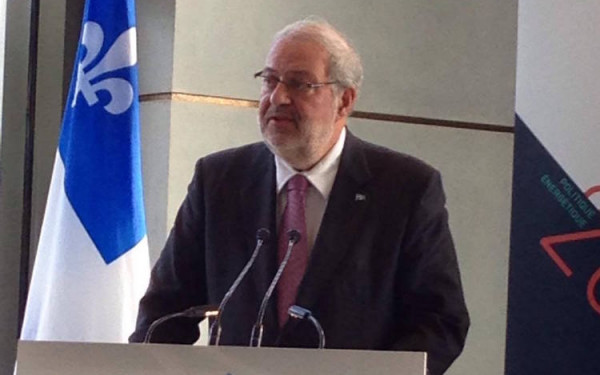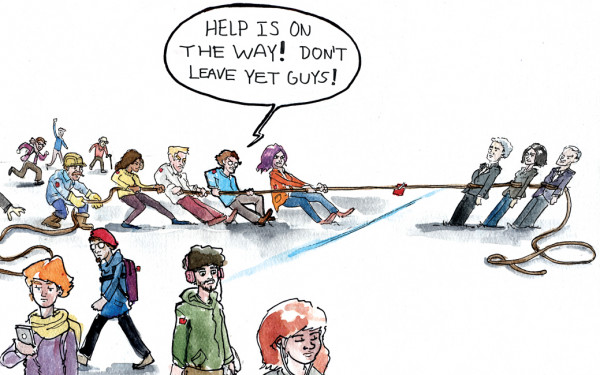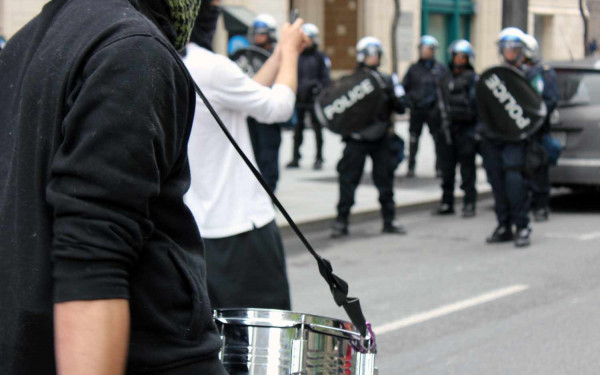Universal Basic Income in Quebec?
Roundtable Held in Montreal Explores the Question of Social Security
Who would be eligible? How would it be distributed? Who would pay for it?
These were some of the questions raised during a roundtable on universal basic income, held at Montreal’s Justice and Faith Center on Wednesday.
Universal basic income is a form of social security where all members of society regularly and unconditionally receive a stipend from the government.
“It’s still a theoretical discussion at this point,” said panelist Eve-Lyne Couturier of the Research Institute of Socioeconomic Information. “We’re just here to consider it.”
Bringing It to the Province
The idea is spreading in Quebec. In the 2014 provincial elections, Quebec Solitaire offered low-income people a $12,660 yearly stipend.The program, if implemented, would’ve put the government out a whopping $3.9 billion, according to their spokeswoman Françoise David. (Reverse engineering those stats shows that roughly 315,000 Quebecers, or 8.25 per cent of the province, would’ve been eligible.)
Last February, Premier Philippe Couillard said that he was seriously considering setting up a universal income program, and not “just blowing hot air.” He tasked his Employment and Social Solidarity Minister François Blais with working on a plan.
Blais’ book, Ending Poverty: A Basic Income for all Canadians, suggests that he supports the idea. However, it remains to be determined if it will actually come to fruition. He has advocated an “étapiste” or “small steps” approach to implementation—which could take up to 30 years to achieve. Blais wrote that basic income’s “main challenge” is “substituting [programs rendered disposable] as gently as possible.”
Within greater Canada, basic income became an official Liberal Party policy when delegates to the party’s convention voted in favour of the resolution in May. This didn’t automatically make it a mandate of the current Liberal government, though. The government is not bound to Party resolutions. The monthly payment would also replace certain social services, like Employment Insurance or Old Age Security, with a monthly cheque.
How people feel about that depends on whether or not they agree with Couturier’s assertion Wednesday night that people should be trusted with their own money.
An Exercise in Democracy
“Welfare can be a trap,” said Marie-Pierre Boucher, an UQO professor participating via Skype.
“[Universal basic income] abolishes that trap.” She explained that, the way the current welfare system is organized, recipients are eligible only up to a certain income. If they gain an extra dollar, the cheques stop coming.
Couturier later added that this causes a cycle of poverty. It discourages people on welfare from picking up extra shifts, because more money paradoxically means less money. UBI, which persists through income increases, gives people bootstraps by which to pull themselves up.
“They implemented [a program] in several towns in India in 2011,” said Couturier. “All of a sudden, people had the means to get into the city and get work and make more money.”
Her co-panelist Serge Pertitclerc, spokesperson of the Collective for a Poverty-Free Quebec, later added that when poor people come into money, they don’t buy Corvettes or invest it in fiscal paradises, “they go out and get education.”
Although it looks like socialism, Couturier emphasized the non-partisanship of the ideology.
According to her, it has been presented on both the left and right. (Alaska, reliably republican leaning in presidential elections, established a permanent fund in 1976, in which a portion of natural resource revenue was distributed to all proven residents.)
However, she said, there are predictable differences between the initiatives. In left wing proposals, benefits are high. They aim to eliminate poverty, free people from dead-end jobs, and detangle work, salary, and revenue. On the right, however, benefits are small, one-time lump-sums, and their ultimate purpose is to free the state from the responsibility of a “social safety net.”
During the Q&A period after the panel, a scruffy man expressed his response to the discussion. “It isn’t our problem,” he said, answering his rhetorical question about how such a program would be funded. “Let the government figure that out. Tax the rich.”
But Couturier, to a certain extent, cautioned against that kind of talk. “We can’t forget that the rest of the population is not necessarily in the most fun situation. People have jobs but no job security. Schools are in ruins. They’re full of mould.”
In 2017, Finland will implement a base revenue program. Starting in the least-employed regions then expanding to the whole country, Fins will receive 800 Euros, approximately $1200, a month as of next year.

_900_454_90.jpg)





